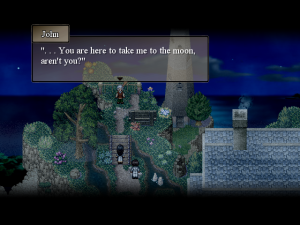My parents had explained to me from an early age that I was growing every day, too slowly to see, but that after a number of years, I would eventually become a grownup like my Dad. That was a good thing, I thought! My Dad was the smartest person I knew.
Like most children, I was asked “What do you want to be when you grow up?”, and like most children, I had some pretty funny answers to that question based on whatever interested me most at the time I was asked. When I was fascinated by road maps and traffic signs, I thought that I’d like to be the person who makes all of the stop signs, street name signs, and exit signs. There must be someone who does that, right? Well, then, maybe I could be a cartographer. That was a person who made maps.
When I was fascinated by learning the bones and organs of the human body, I thought I might like to be a doctor just like my father. He took me to work one time and showed me an actual skeleton they had there for medical students to study (I guess?), and I amused my Dad’s coworkers by pointing out and listing the names of all of the bones I had learned.
When I was fascinated by learning about the stars and planets, I thought I’d like to be an astronomer. Then I could write the books I enjoyed reading so much.
But as I began to get a little older, I started hearing some things that made me worry. My aspie brain was constantly taking in information from what I heard people say, from what I read, and from what I saw on television. I learned that before I became a grownup, I would first become a “teenager.” And I didn’t think I wanted to be one.
Why? Well, the first thing most people seemed to say about teenagers was that they didn’t get along with their parents. I heard it wherever I went.
Adults would warn/tease their friends with young children: “You think being a parent is tough now– just wait until they’re teenagers!”
At a Christian concert, the singer joked about how it’s hard for parents to watch their children grow up and leave home when it seems like the time goes so fast, but that God had provided something to make it easier for parents to let go: “It’s called the teenage years.”
In stories and TV shows about families, the teenage characters always seemed to be either arguing with their parents or trying to get away with something without their parents knowing.
Teenagers often seemed to be portrayed as a bad influence in morality tales for younger children. (And in the 1980s and 1990s, even some of the most mindless children’s shows tried to present themselves as morality tales!) If a story was about the evils of alcohol or drugs, or just trashing the house with a party while your parents were away, one of the first signs of trouble was getting the “big kids” involved.
It’s pretty silly, but I began to dread becoming one of these teenagers.
I didn’t want to fight with my parents! I knew that the Bible said that children were supposed to obey their parents. Besides, I liked my Mom and Dad! I decided that I would try my best to make sure that I wouldn’t become rebellious. (The idea that I thought I was in danger of turning into a rebel is actually pretty funny now, knowing my personality.)
[I just thought of an interesting tangent I could follow here, but I’m going to try to save that for another post, because this one is taking me too long, and I’m ready to be done with it! 🙂 ]
I don’t know why I didn’t talk to my parents about my fears until much later (when I realized I hadn’t turned into a monster after all). Even then, I spent a lot of time thinking to myself, trying to figure things out.
I wonder if other kids worried about growing up the way I did. Hopefully, most people are not as literal-minded about it as I was.
There’s a neat story I want to share with you. I’m remembering it second-hand, so I might not have all of the details right, but I can explain the gist of it:
A while ago, my parents were visiting a church while on vacation. The guest speaker was a pastor from a sister church in Africa. One of the things they remembered from his message was that he spoke proudly about his teenage children, who were seeking to honor God and help others in whatever they did. He said that he was dismayed by how much he had heard the idea expressed in America that teenagers are lazy or a burden or always up to trouble. God can use anyone at any stage of life, and we should not let ourselves or others be defined by human labels and categories.
That’s such an encouraging message! I think it’s important to realize that even when an idea seems universal in our culture, that doesn’t mean it’s correct.
